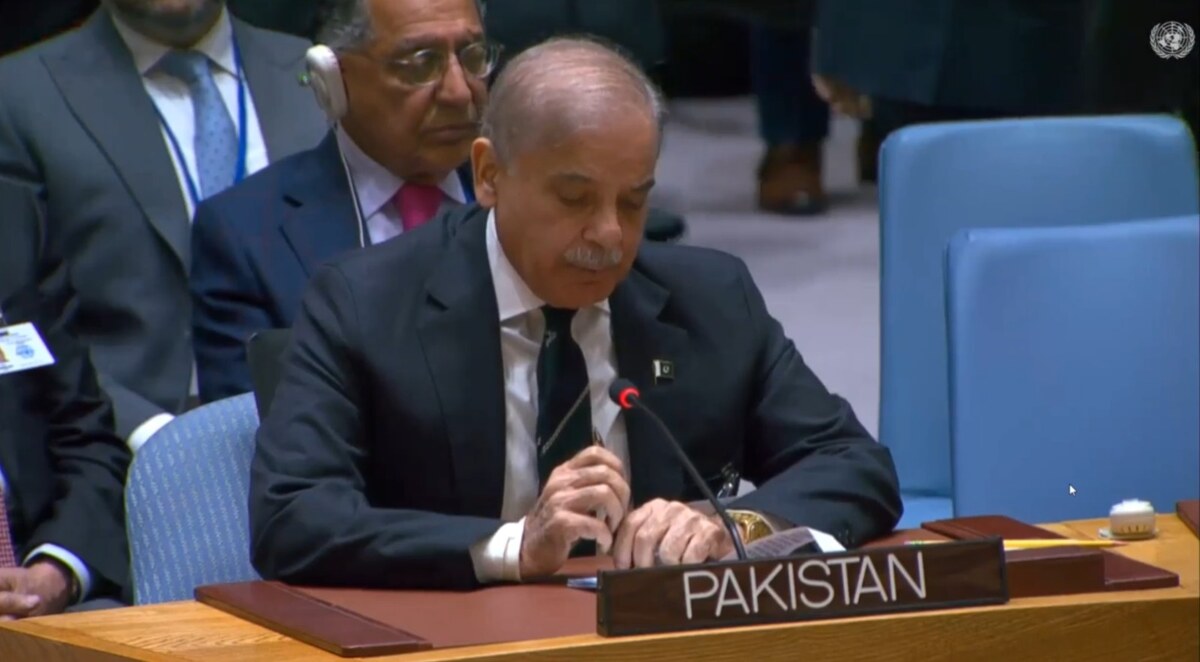ISLAMABAD: Prime Minister Shehbaz Sharif urged the United Nations Security Council to end Israel’s “genocidal war” against the people of Palestine and impose sanctions against it while participating in the “Leadership for Peace” debate on Wednesday.
Israel launched a military operation in Gaza following a surprise attack by Hamas on October 7, 2023, which the group said was in response to the worsening conditions faced by Palestinians under Israeli occupation.
Since then, the conflict has claimed over 43,000 lives, including a significant number of women and children, according to Palestinian health officials.
World bodies, including the International Court of Justice, have condemned Israel’s occupation of Palestinian territories and criticized the conduct of the war, which has targeted hospitals and residential areas, leading to disproportionate civilian casualties.
“We must compel Israel to halt its genocidal war in Gaza and prevent its attempt to provoke a wider conflict in the Middle East,” the prime minister said in a brief statement. “It is time to consider sanctions against Israel, including an arms and trade embargo.”
“It is time to hold its leadership accountable for its crimes against the Palestinian people,” he added.

Pakistan Prime Minister Speaks during UN Security Council’s open debate on “Leadership for Peace” on the sidelines of 79th UNGA in New York on September 25, 2024. (Screengrab/UN)
The prime minister noted that proliferating wars in the Middle East and Europe along with great power rivalries and growing poverty were threating the foundations of world order.
He urged the Security Council to develop an impartial plan for a ceasefire and peaceful solution for the war in Ukraine and not allow its prolongation or escalation.
Sharif also discussed the situation in Indian-administered Kashmir, saying the UN could no longer ignore the “festering” dispute.
“It poses an ever present threat to international peace and security,” he maintained. “The Council must call for a halt to the massive violations of the fundamental rights of the Kashmiri people and implement its own resolutions that demand a plebiscite for self-determination in Kashmir.”
The prime minister expressed concern over the regional security situation, asking the world body to “effectively address the resurgence of the threat of terrorism from Afghanistan” while mentioning Daesh and Tehreek-e-Taliban Pakistan.
He called for “zero tolerance” for the illegal use of force and revival of global efforts to halt and reverse the arms race in nuclear and conventional weapons, promising his country’s full cooperation with other member states to pursue these objectives.
The prime minister later met with Palestinian President Mahmoud Abbas and later told the media that ” the sacrifices of Palestinian brothers and sisters, their patience, their bravery will not go [to] waste and Insha’Allah it will result in [the] independent State of Palestine.”
Abbas also acknowledged Pakistan’s unstinting support, saying it began even before 1948.
“Their [the Pakistani] position is fully with the Palestinian people and they help the Palestinian people as much as they can,” he added.















